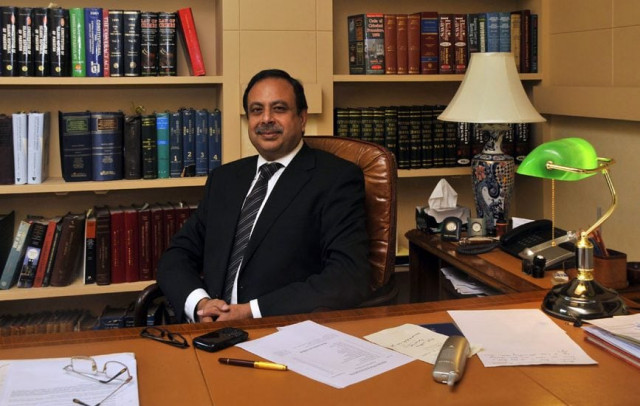Transfer of regulators: AGP says approval of CCI not necessary
Giving administrative control of five regulatory bodies not a policy decision: Ashtar Ausaf Ali

In a surprise move that was strongly opposed by the provincial governments particularly of Sindh, Prime Minister Nawaz Sharif on December 19 shifted the administrative control of five autonomous regulatory bodies from cabinet division ministry to the relevant ministries.
According to the notification, the National Electric Power Regulatory Authority (Nepra) was transferred to Water and Power Ministry; the Pakistan Telecommunication Authority (PTA) and the Frequency Allocation Board (FAB) to Information Technology Ministry; the Oil and Gas Regulatory Authority (Ogra) to Petroleum Ministry; and the Public Procurement Regulatory Authority (PPRA) to Finance Ministry.

Talking to The Express Tribune with reference to the move, Attorney General Ashtar Ausaf Ali said giving administrative control of five key regulatory bodies was not a policy decision as it was just change in rules of business for which the CCI was not the forum.
“When it was decided to place these regulators under the cabinet division even then the CCI was not the decision-maker as it is a normal government business,” Ali said, adding that there was no political interference in affairs of these bodies.
“The cabinet division also works directly under the prime minister; if there was no political interference earlier then how could it be now? It is only a matter of streamlining and cutting out unnecessary paperwork,” he said.
Ali said earlier it required the matter to be routed from regulators to the cabinet division and then to the relevant ministry and then back. This, he said, would take two to three months to sort out even little matters. “But now we will be able to save time,” he added.
The AGP said essentially regulators were introduced in the executive arm of the state to allow for independent regulation [like licensing, pricing, investigation, penalising] primarily because of lack of capability and resource in the mainstream government ministries.
“The regulators are created under acts of parliament, which specify the instances [like policy directions, rule-making and annual report of activities undertaken] when the regulator will be subject to federal government,” he said.
In these instances the regulators interact with the federal government. They are not under the financial or administrative control of the federal government under any circumstance, Ali added.
The AGP also said previously these regulators would submit rules for approval to the cabinet division, which would then submit them to the ministry concerned for their comments etc.
He said the cabinet division ministry was effectively acting only as a post office without independent input because the ministries concerned had the power associated with the relevant policies, procedures and decisions in that particular sector.
“Now the post office has been removed and the regulator will be operating through the ministry concerned directly. The ministry will be submitting all matters to the cabinet or cabinet committees and no one minister or ministry will operate standalone so there is collective decision making either way,” he added.
The AGP, however, admitted that constitutionally, all regulatory bodies are under supervision and control of the CCI; therefore that is an additional check on the federal government as well as the regulators themselves.
“In any case regulators can’t operate in a vacuum from the policy decisions of the executive and there is substantial international literature on this,” he said, adding that the move will actually reduce disconnect between the state and the regulators because there will be more meaningful interaction.
Published in The Express Tribune, December 24th, 2016.


















COMMENTS
Comments are moderated and generally will be posted if they are on-topic and not abusive.
For more information, please see our Comments FAQ